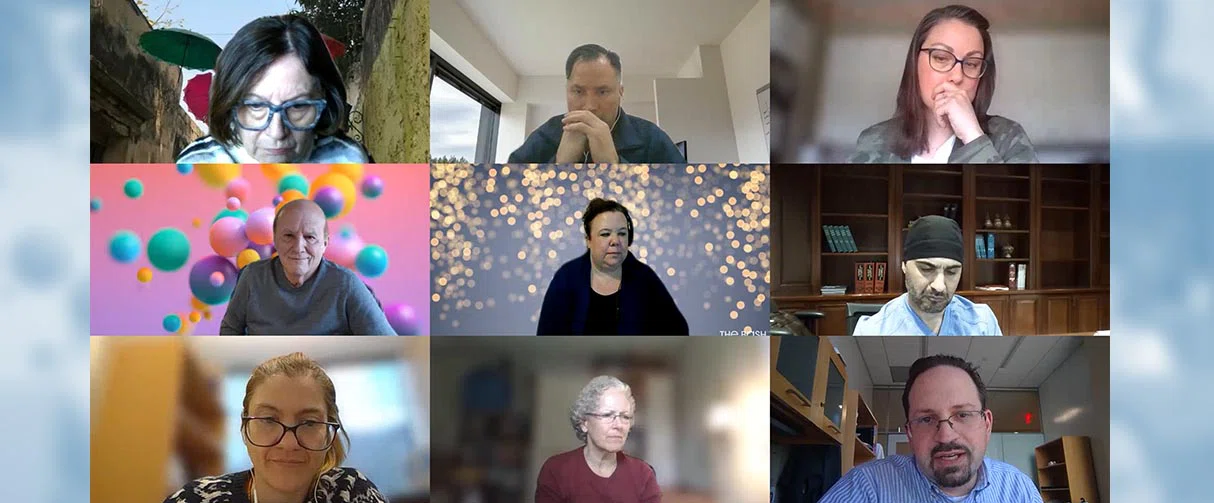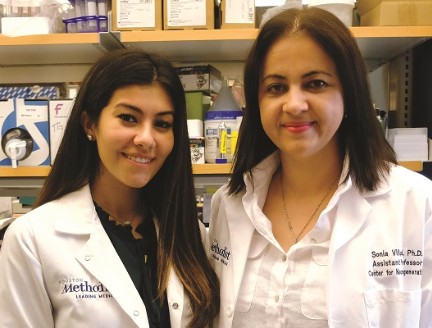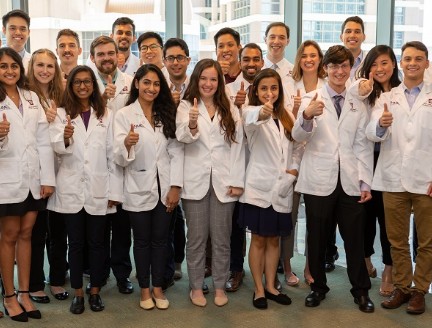


Innovative Education
Q&A — Creating a Personalized Path for Academic Success
Dorothy Lewis answered a few questions about her team’s faculty development efforts designed to facilitate the academic success of Houston Methodist researchers.

Dorothy Lewis (top row, left) and Colleen Williams (bottom row, middle) facilitating the research management overview workshop
With an illustrious career as a scientist spanning over three decades, Dorothy Lewis has achieved recognition for publishing high-quality publications, getting meritorious research funding and running a successful laboratory. But throughout her professional life, Lewis has always been driven by a passion for helping others succeed in their academic pursuits. Now, in her career’s second inning, she, along with Colleen Williams, manages the faculty development efforts at Houston Methodist. Lewis spoke about some of the challenges faced by faculty members and the efforts made at Houston Methodist to support the research staff in their academic endeavors.
When did you realize that mentoring and helping academics develop skills to succeed professionally was one of your callings?
It was quite early in my career. The labs I worked in as a graduate student and postdoctoral were really formative because I was surrounded by really smart people, but during my postdoctoral, for instance, my scientific mentor was gone all the time. I had to figure out a lot of things on my own without much mentoring or guidance. I vowed then to do something to help people when I became a lab head, especially women and underrepresented minorities. When I was in graduate school, there were hardly any women professors.
Graduate students and postdocs certainly need mentoring since they are in the process of developing their scientific skills. But aren’t assistant professors ready to dive right into their role as junior faculty?
It's a really hard transition to becoming an assistant professor. There are all these things they are expected to do beyond science and research. These talented people probably made a scientific discovery that got them hired, but then they're just thrown into the role of faculty and are expected to have all kinds of management skills, like how to run a lab, how to make budgets and how to hire people. And that's actually when most women and underrepresented minorities drop out. I see a real opportunity to make a difference in this transition stage and am delighted to help our faculty at Houston Methodist.
Could you give us a taste of the kind of faculty development services offered at Houston Methodist?
Our team offers a variety of interactive workshops, like clinical research billing, concept to commercialization, grant and bio-sketch development, and leading in the lab. My team provides a “concierge service” to our faculty – so whatever they need, if they reach out to us, they're going to get a class, personalized mentoring or a professional contact.
Leading in the lab sounds like an interesting class, could you tell us a little about it?
Most, if not all, assistant professors have never taken a management class. How would they know how to run a lab or budget? Let's say they have $5,000 a month to spend, they have to know how to budget that amount correctly. They need to figure out how to hire people for their lab, and how to manage graduate students and postdocs. Also, the more successful you are, the more people join your lab, and it can be very difficult to handle many people and your time successfully. Leading in the lab is help with developing strategies for all the things assistant professors have to take care of that aren't really science-related.
You mentioned personalized mentoring. Are these one-on-one sessions? What do you provide help with?
Yes, they are one-on-one sessions, and I try to customize my mentoring depending on the level the faculty are at. For example, those who are more advanced in their careers might be interested in talking through their manuscripts or grants. I'm a good editor, but I'm also a person who was chair of a study section, and I’ve read thousands of grants during my career. And so, I encourage faculty to explain their grant to me so that they can identify and fill in any logical gaps that might be in their proposals. On the other hand, a junior faculty may need help with setting up a lab or managing students.
And when faculty succeed, how does that feel, when they get their first grant perhaps?
I know it sounds trite and corny, but when I find out somebody's got their grant, that's the best feeling in the world. I get a note saying, “Thank you so much, Dr. Lewis, for your help.” To me, that's the biggest deal. That's the reward! We celebrate together.
To learn more about workshops, seminars and other services provided by Lewis and her team, please visit the Houston Methodist Faculty Development page.
Vandana Suresh, PhD, June 2022








